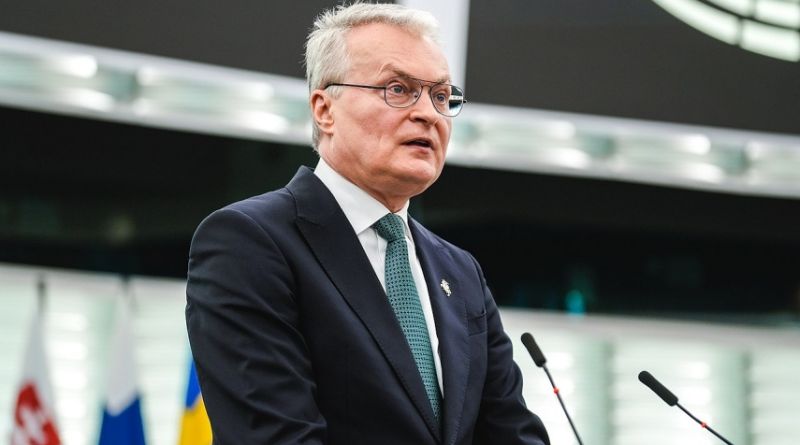Lithuania, a vibrant Baltic nation known for its rich history, resilient spirit, and forward-looking policies, has recently been in the news for developments spanning areas like geopolitics, energy, technology, and social issues. As a key member of the European Union and NATO, Lithuania’s actions often carry regional significance, influencing both European and international landscapes. This article offers an update on recent news and developments from Lithuania, including its role in the region, domestic advancements, and its response to global issues.
Table of Contents
Major News and Developments in Lithuania
1. Geopolitical Tensions and NATO Collaboration
- Standing Strong Against Russian Influence: Lithuania has taken a leading role among Baltic nations in advocating for stronger sanctions and more robust defense measures against Russian aggression. Following recent global geopolitical shifts, Lithuania has voiced unwavering support for Ukraine, seeing the country’s resistance as essential to maintaining security in Eastern Europe.
- Military Collaboration: In response to rising tensions, Lithuania has actively collaborated with NATO forces. This includes hosting regular NATO training exercises, enhancing military infrastructure, and investing in defense capabilities. The country has also prioritized defense spending, further underscoring its commitment to regional security.
2. Pushing for Energy Independence and Sustainability
- Moving Away from Russian Energy: Lithuania has been working to diversify its energy sources, particularly moving away from Russian imports. The country recently made headlines for ceasing all imports of Russian natural gas—a significant move for a country once heavily dependent on it.
- Renewable Energy Projects: As part of the EU’s commitment to climate goals, Lithuania is investing in renewable energy sources like wind and solar. Lithuania’s offshore wind projects and expansion of solar energy resources are notable initiatives that aim to make the country a renewable energy leader in the Baltic region.
3. Technological Advancements and Digital Innovation
- Growth of the Tech Industry: Lithuania’s tech sector continues to grow, especially in fintech and cybersecurity. Vilnius, Lithuania’s capital, has become a hub for startups, offering a supportive environment for young businesses. With a highly skilled workforce and a favorable regulatory environment, the country attracts tech entrepreneurs from across Europe.
- Cybersecurity Initiatives: With rising cyber threats worldwide, Lithuania is strengthening its cybersecurity framework. The government has invested in digital infrastructure to protect against cyber attacks, a move particularly important given Lithuania’s proximity to Russia.
4. Education and Workforce Development
- STEM Education Programs: Lithuania’s emphasis on science, technology, engineering, and mathematics (STEM) education has gained traction, helping meet the demands of its growing tech industry. Universities and schools are partnering with tech companies to provide students with skills aligned with current job market needs.
- Attracting International Talent: In response to a shrinking workforce, Lithuania has introduced visa programs to attract skilled foreign workers. Additionally, the government has implemented initiatives aimed at encouraging Lithuanians working abroad to return, providing incentives to those who bring their experience and knowledge back to the country.
5. Promoting Cultural Heritage and Tourism
- Highlighting Lithuania’s History: The government has been actively promoting cultural sites and events, such as the annual Vilnius Film Festival and other festivals that showcase Lithuanian music, art, and dance. These events draw international attention, boosting tourism and highlighting the country’s cultural heritage.
- Growing Tourism Sector: While the pandemic temporarily reduced tourism, Lithuania has since seen a resurgence. Popular attractions include Vilnius’ Old Town, Trakai Castle, and the Curonian Spit, all of which have played a role in boosting the economy through travel and tourism.
Frequently Asked Questions (FAQs)
1. How is Lithuania dealing with the current geopolitical situation in Eastern Europe?
Lithuania is closely involved in Eastern European security, actively working with NATO allies to strengthen defenses and support Ukraine. The country advocates for strict sanctions against Russia and prioritizes military readiness through training exercises and investments.
2. What is Lithuania doing to become energy independent?
Lithuania has taken significant steps to diversify its energy sources, especially in renewable energy. It has phased out Russian natural gas and is investing heavily in wind and solar energy as part of a broader plan to achieve energy independence.
3. Why is Lithuania considered a tech hub in the Baltic region?
Lithuania has become a hub for tech startups due to a supportive business environment, skilled workforce, and a focus on cybersecurity and fintech. The capital, Vilnius, is especially known for its thriving tech ecosystem.
4. What are Lithuania’s main tourist attractions?
Lithuania offers many attractions, including the historical sites in Vilnius, the medieval Trakai Castle, and the scenic Curonian Spit. The country’s rich cultural events and festivals also make it an appealing travel destination.
5. Is Lithuania investing in digital education?
Yes, Lithuania is investing heavily in STEM education to align with the needs of its tech industry. Schools and universities are increasingly focused on providing skills that match the demands of the digital economy, preparing students for jobs in technology and innovation.
Conclusion
Lithuania stands as a beacon of resilience and innovation in the Baltic region. From leading the charge on security and defense to advancing in technology and renewable energy, Lithuania is setting itself up for a prosperous future. Its unique cultural heritage, combined with forward-thinking policies, makes Lithuania a vital player in the European and global landscapes. As Lithuania continues to navigate complex challenges, it remains a fascinating country to watch on the world stage, influencing discussions on security, energy, and economic development.
